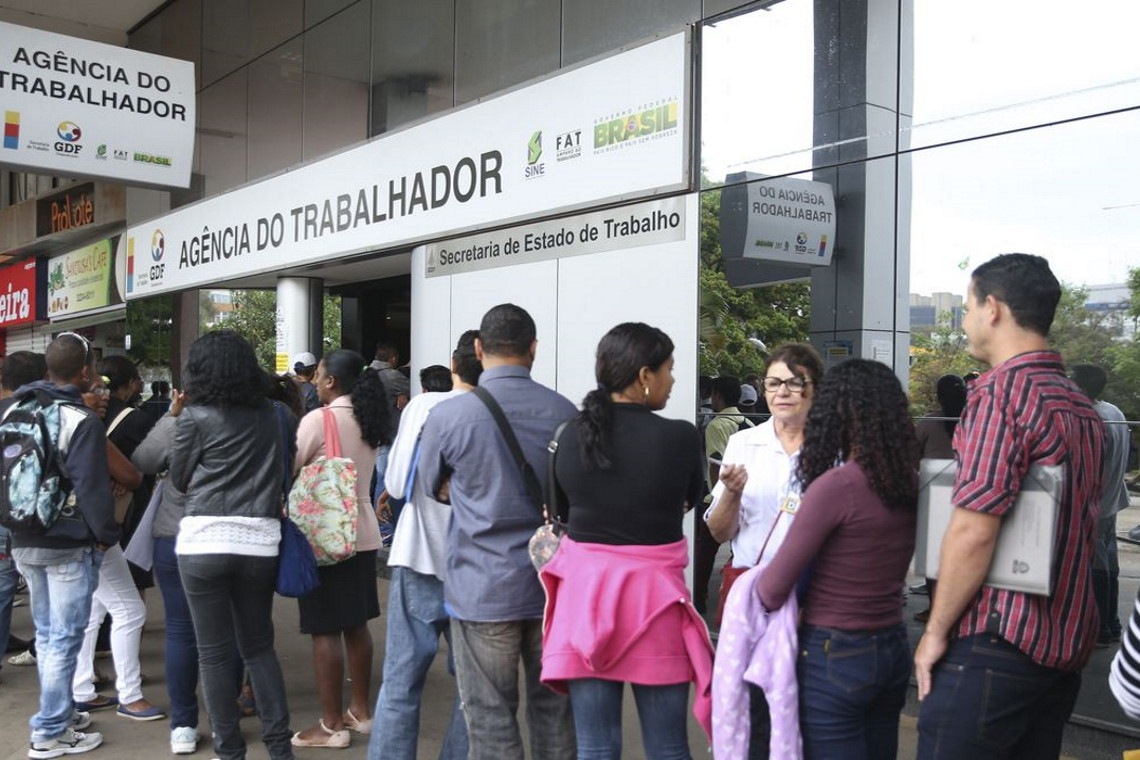RIO DE JANEIRO, BRAZIL – Brazil counts 25.6 million people who would like to be working, but did not look for a job in May during the novel coronavirus pandemic in the country, the Brazilian Institute of Geography and Statistics (IBGE) reported on Tuesday, June 16th.

Of that total, 17.7 million said they did not seek employment either because of the pandemic or because they do not have a job in their area – which could also be linked to Covid-19.
This is the first edition of an extraordinary survey conducted by the IBGE, called PNAD Covid19, to assess the impact of the disease on the population and the labor market. However, it differs from the Continuous PNAD, which measures unemployment in the country.
The survey also found that the pandemic has driven 14.6 million people out of work. According to the IBGE, the reason behind this was issues specifically related to Covid-19, such as quarantine, isolation, social distancing, or collective vacation. This number dropped throughout May: there were 16.5 million at the start of the month.
Another 10.9 million people were unemployed during the period, which means they searched, but found no employment. Thus, in total, approximately 28.6 million people had restricted access to the labor market during the month of May.
According to the survey, the number of unemployed also increased from 9.8 million people in the first week to 10.8 million at the end of the month. Meanwhile, 8.8 million Brazilians are working from home during the pandemic.
By the end of May, the IBGE had already announced in its Continuous PNAD report that the novel coronavirus pandemic contributed to the loss of 4.9 million jobs in Brazil in the quarter ending in April, a record since official figures began being recorded. Of that total, 3.7 million casual jobs were lost.
According to the PNAD Covid released on Tuesday, the contingent of casual workers dropped throughout the month, from 35.7 percent in the first week to 34.5 percent in the last, with a reduction of 870,000 casual jobs in the period.
According to Cimar Azeredo, IBGE’s research director, informality acts as a buffer for people who become unemployed or are underutilized.
“Casual work would be a way to save jobs, so we can’t say that this drop is positive,” Azeredo said.
According to the IBGE, since the survey is unprecedented, waiting for the next results is needed to more accurately assess the impact of the pandemic among the casual workforce.
Two other indicators released by the IBGE in June show the impact of the pandemic on the Brazilian economy. Industry fell 18.8 percent in comparison to March, and 27.2 percent if compared to the same period last year. Trade retreated 16.8 percent in both analysis levels. The figures, both in the industrial and retail sectors, are negative records.
One of the sectors that most felt social distancing was the textile industry, with a 28.5 percent drop in industrial production and 60.6 percent in clothing, fabrics and footwear trade. According to Fernando Pimentel, president of ABIT (Brazilian Textile and Clothing Industry Association), over half of the companies in the sector dismissed employees during the pandemic.
According to him, if it were not for MP (Provisional Measure) 936, which authorizes wage and work day reductions, the number of dismissals would have been much higher.
About ten million Brazilians had their employment contracts affected by the measure.
“The economy plummeted. Without these measures, more jobs would have been lost. The reduction in personnel was up to 20 percent of those employed, and encompassed approximately 60 percent of companies,” Pimentel said. Étore Sanchez, chief economist of Ativa Investments, pointed out that the relaxation of restrictive measures, which has been occurring in some states this month of June, will help the economy rebound and new jobs will emerge.
“Today, I can envisage a rebound. The economy will reopen gradually and we will feel it more strongly in June and so on”, the economist pointed out, stressing that the improvement will also hinge on the development of the pandemic since new restrictive measures could halt the rebound.
For Otto Nogami, an Insper economist, the number of people outside the formal workforce, which stands at 74.6 million, is striking. According to him, the number is worrying and a result of the pandemic. The rebound process will not be swift.
“As small businesses close, there is an impact on overall statistics. The aggregate of market losses is huge, micro and small businesses represent the base of the pyramid, and it is being dismantled,” said the economist.
The PNAD Covid was first announced by the IBGE, in partnership with the Ministry of Health, and mobilized 2,000 agents, who will call 193,600 homes in 3,364 cities nationwide.
Covid-19’s first known case in Brazil occurred on February 25th. In the following month, March, the country began to feel the economic impact of the novel coronavirus, with bars, restaurants and stores closed as a way to prevent the pandemic from spreading.
Source: Folhapress

